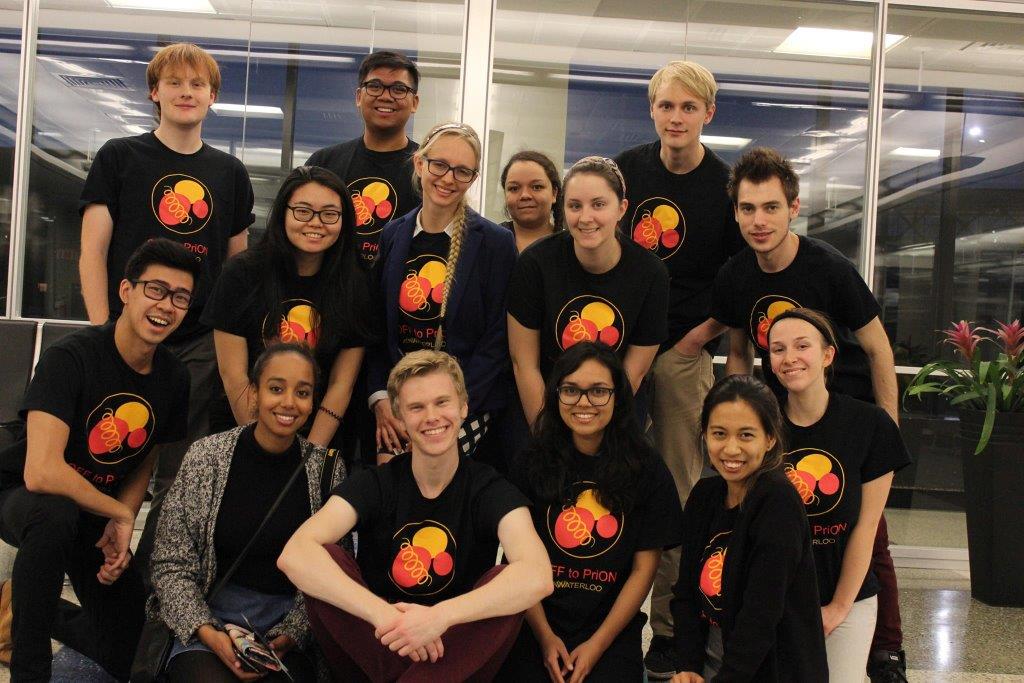The University of Waterloo’s International Genetically Engineered Machine (iGEM) Team achieved a gold medal standing for the fourth consecutive year, as well as the award for Best Poster in the overgrad division in the 2016 iGEM Giant Jamboree competition.
Waterloo’s team, made up of undergraduate students from the Faculties of engineering, math and science, competed against over 300 others from universities throughout the world at the jamboree held in Boston from October 27 to 31.
The largest synthetic biology event of the year, the annual iGEM competition combines creative interdisciplinary research with cutting-edge science, challenging students to create their own biological systems to help tackle real world problems.
This year’s project, titled OFF to priON, looked at engineering a system that could be applicable in the treatment of prion-based diseases, like mad cow disease. The Waterloo team worked on developing a tool to aid in the research of diseases by helping to identify new protein targets.
Marc Aucoin, a chemical engineering professor and a faculty adviser to the team, says he’s proud of the accomplishments of the Waterloo students, who included eight from engineering: Tony Kappen, Jane Wang, Austin Boucinha, Max Reed of nanotechnology engineering; Hannah Sennik of systems design engineering, Gareth Holmes and Emily Watson of chemical engineering, and Joyce Zhang of biomedical engineering. Aucoin says their roles were distributed between the three subteams for the project: lab and design, mathematical modelling, and policy and human practices.

iGEM team members from the Faculties of engineering, math and science.
Getting to contribute to a student-led research team taught us a lot about teamwork, project management, and the design process," says Zoë Humphries, one of the project leads. "Engineering students are exposed to different problem spaces and they get the chance to find solutions in collaboration with students from different fields."
Showcase for incredible work
Humphries adds
that
the
competition itself
is
an
amazing
opportunity.
"Our
team
was
able
to
share
our passion with
thousands
of
other excited students
as
well
as
with industry
members, instructors,
and
judges,"
she
explains.
"This
event
is
a
showcase
for
the
incredible
work
that
students
can
accomplish
and
a
kind
of
revelation
for
the
interesting
interdisciplinary work
being
done
in
synthetic
biology."
A winning record
With a competition history stretching back to 2007, Waterloo’s team has consistently earned medals with exceptional projects each year.